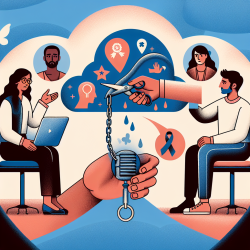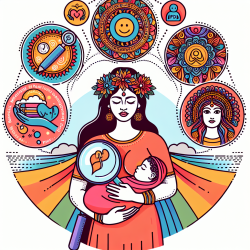The management of pediatric off-label drug use is a pressing global health concern. In China, the rates of off-label prescriptions in children range significantly, posing substantial risks to their safety. To address this, the Guideline for the Management of Pediatric Off-Label Use of Drugs was developed in 2021. However, implementing these guidelines in clinical practice remains challenging due to various barriers and facilitators.
Understanding the Barriers and Facilitators
A recent study conducted interviews with healthcare professionals across China to identify factors influencing the implementation of these guidelines. Using the Consolidated Framework for Implementation Research (CFIR), researchers identified 57 factors: 27 facilitators, 29 barriers, and one neutral factor.
Key Barriers
- Lack of Policy Incentives: The absence of administrative or policy promotion and non-reimbursement by health insurance are significant external barriers.
- Communication Gaps: Internal communication barriers between pharmacists and physicians hinder effective implementation.
- Knowledge Gaps: Many healthcare professionals lack understanding of the Benefit and Risk Assessment framework for off-label drug use.
Facilitators to Implementation
- Supportive Legal Framework: The Physicians Law of the People's Republic of China supports guideline adherence.
- Pharmaceutical Involvement: Participation by pharmaceutical companies in promoting clinical trials aids in guideline implementation.
- Cultural Alignment: Hospitals with a culture that aligns with guideline goals are more likely to implement them successfully.
Strategies for Improvement
The study suggests several strategies to overcome these barriers:
- Tailored Strategies: Develop specific implementation strategies for different hospital grades to enhance applicability.
- Enhanced Communication: Establish networks for better communication between clinicians and pharmacists using models like SBAR (Situation-Background-Assessment-Recommendation).
- Policy Advocacy: Encourage national health administrations to promote policies that support guideline implementation.
- Educational Initiatives: Develop patient-friendly versions of guidelines to improve understanding among parents and caregivers.
The Role of Healthcare Professionals
Pediatricians and pharmacists play crucial roles in managing off-label drug use. Their collaboration is essential for successful guideline implementation. Encouraging ongoing education and fostering a culture of open communication can significantly enhance adherence to guidelines.
Conclusion
The research highlights the complexity of implementing pediatric off-label drug use guidelines in China. By addressing identified barriers and leveraging facilitators, healthcare professionals can improve adherence and ensure safer drug use practices for children. For practitioners looking to enhance their skills, further research into tailored strategies and communication models is recommended.
To read the original research paper, please follow this link: Barriers and facilitators to guideline for the management of pediatric off-label use of drugs in China: a qualitative descriptive study.










